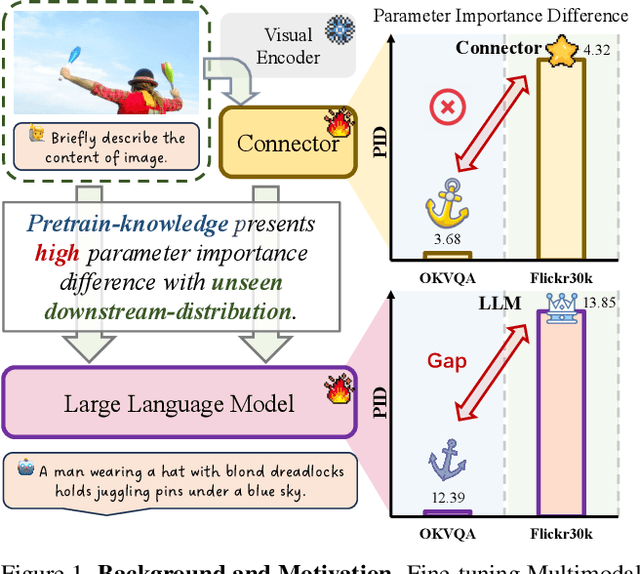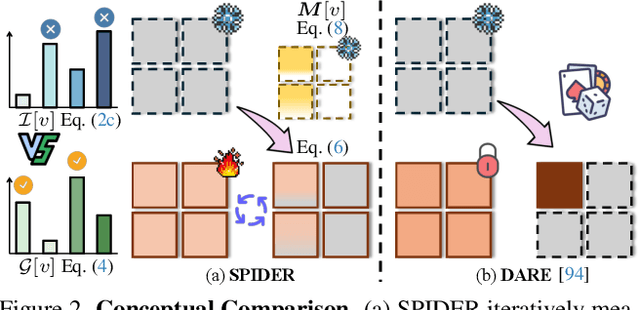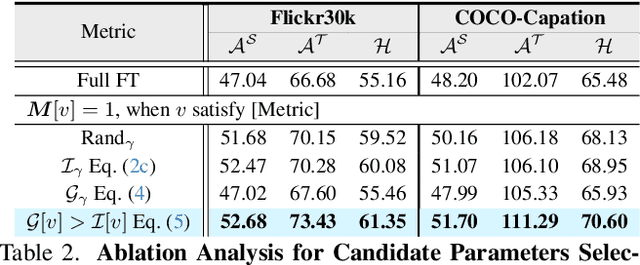Learn from Downstream and Be Yourself in Multimodal Large Language Model Fine-Tuning
Paper and Code
Nov 17, 2024



Multimodal Large Language Model (MLLM) have demonstrated strong generalization capabilities across diverse distributions and tasks, largely due to extensive pre-training datasets. Fine-tuning MLLM has become a common practice to improve performance on specific downstream tasks. However, during fine-tuning, MLLM often faces the risk of forgetting knowledge acquired during pre-training, which can result in a decline in generalization abilities. To balance the trade-off between generalization and specialization, we propose measuring the parameter importance for both pre-trained and fine-tuning distributions, based on frozen pre-trained weight magnitude and accumulated fine-tuning gradient values. We further apply an importance-aware weight allocation strategy, selectively updating relatively important parameters for downstream tasks. We conduct empirical evaluations on both image captioning and visual question-answering tasks using various MLLM architectures. The comprehensive experimental analysis demonstrates the effectiveness of the proposed solution, highlighting the efficiency of the crucial modules in enhancing downstream specialization performance while mitigating generalization degradation in MLLM Fine-Tuning.
 Add to Chrome
Add to Chrome Add to Firefox
Add to Firefox Add to Edge
Add to Edge